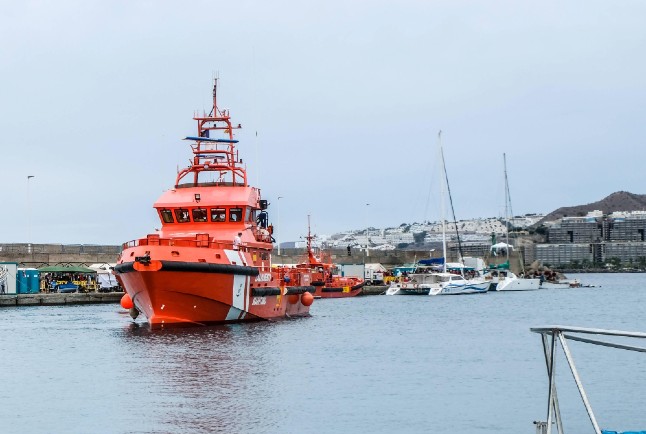A RECORD-BREAKING migrant boat carrying 231 passengers – including 58 children – landed in the Canary Islands yesterday.
The overcrowded vessel, known as a cayuco, had been at sea for 11 days before finally reaching Gran Canaria.
The passengers, hailing from countries including Gambia, Senegal, Mali, and Guinea, were given medical attention upon arrival after enduring a perilous journey across the Atlantic.
Three individuals required hospitalisation after surviving the ordeal.

The Spanish Coast Guard detected the boat 5.5 kilometres off Arguineguín and sent out a rescue boat, but the cayuco managed to land without assistance.
Boat is the largest ever to arrive on the island of Gran Canaria, but is not the largest to ever reach the Canary Islands, according to the Red Cross.
Several boats have landed on El Hierro carrying over 250 people and the individual record was set at a single vessel bringing 330 people to the island last year.
The latest arrivals continue a humanitarian crisis that has been afflicting the Canary Islands for over a year now as local resources strain to meet their needs.
Yet the occupants were fortunate to survive their perilous journey.
READ MORE: Watch: Dinghy carrying dozens of migrants lands on tourist packed beach on Spain’s Costa del Sol
Last month, at least nine people died and dozens more were missing after their boat capsized during an attempted rescue off the coast of the Canary Islands.
Rescue services managed to save 27 of the total 84 migrants who were on the boat just offshore of El Hierro.
Up until mid-September, a total of 26,758 migrants had landed on the Canary Islands in 2024 – an 85.1% on last year. The figure is almost certain to double last year’s by the end of the year.
The huge numbers have prompted a crisis in Spain over how to receive and deal with the influx of people.
One possible solution has been to convert Ciudad Real Airport, located in Castilla-La Mancha roughly 200 kilometres south of Madrid, into a reception centre.
The local mayor, however, Francisco Cañizar, slammed the proposal as tantamount to a ‘concentration camp’, arguing that it would lack the necessary humanitarian standards for those arriving.







